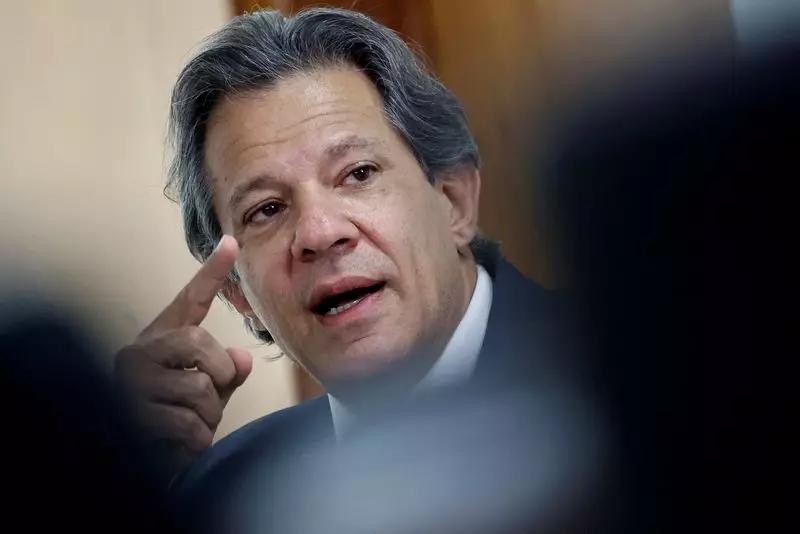In recent weeks, Brazil’s economic situation has become increasingly precarious, particularly illustrated by the Brazilian real’s decline against the U.S. dollar. This troubling trend has been multifaceted, stemming from a combination of governmental hesitance to act decisively on fiscal policy and the rapid escalation of mandatory spending. As the finance minister, Fernando Haddad, navigates these turbulent waters, discussions around a much-anticipated fiscal package grow in urgency and complexity.
During his recent briefing, Haddad indicated that key obstacles within the fiscal package had been addressed, positioning the administration closer to a potential resolution. However, President Luiz Inacio Lula da Silva’s latest request to encompass another ministry within the impending spending cuts has complicated the process. While Tuesday may see further discussions wrap up with this unnamed ministry, the intricacies of governmental negotiations continue to play a central role in shaping the fiscal approach.
Lula’s administration faces significant challenges associated with mandatory expenditures, which have grown alarmingly in recent years. These spending obligations cover critical areas such as health, education, and pensions, necessitating a delicate balance between fiscal responsibility and social commitments. The economic pressure feels particularly acute with the municipal elections approaching, as the government had previously intended to unveil the fiscal package post-election, yet clarity on timelines remains elusive.
As part of his efforts to negotiate this fiscal strategy, Haddad has engaged in dialogue with various ministry leaders, ensuring that the concerns of key stakeholders within health, education, and pensions are at the forefront of discussions. These consultations are crucial in crafting a package that not only addresses fiscal concerns but also maintains public confidence and social commitment. With over ten ministries involved in these recent discussions, stakeholder engagement appears to be a priority for the administration.
As legislators and analysts alike await the official announcement of the proposed fiscal package, hope remains for a swift approval process within Congress this year. However, the finance minister’s inability to provide a definitive timetable raises concerns regarding governmental efficacy and commitment to fiscal reform. Ultimately, the success of these efforts will hinge on the administration’s ability to present a cohesive and comprehensible fiscal package that resonates with both lawmakers and the Brazilian public.
In summation, Brazil’s financial landscape is fraught with challenges as the government seeks to implement critical spending cuts while considering the socio-economic implications of its fiscal policies. While the resolution of previous hurdles marks a step forward, the inclusion of additional ministries and the vagueness surrounding the timeline for the fiscal package imply ongoing complexities. What remains evident is that Brazil’s path toward financial stability will require a strategic balance of economic prudence and social responsibility, making the coming weeks and months pivotal for the country’s fiscal health.

